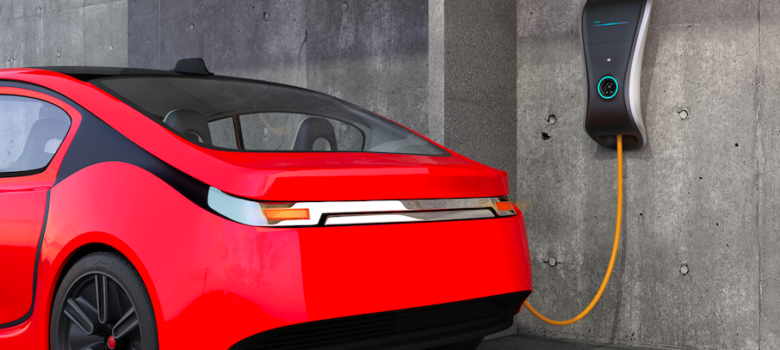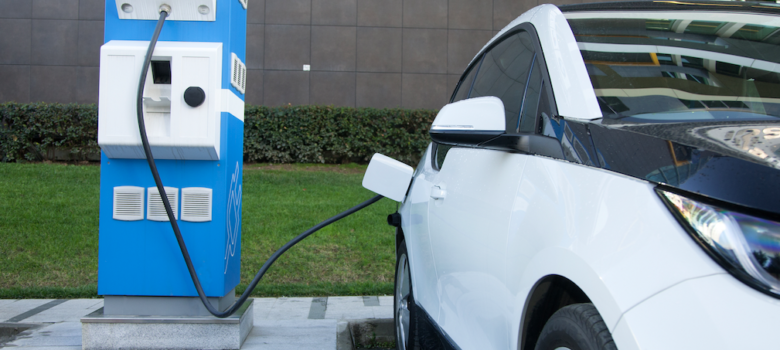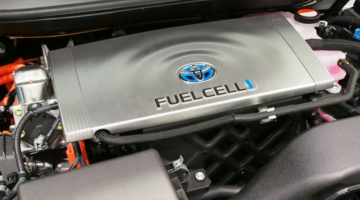
Electric cars have many benefits; amongst other things, they’re better for the planet, quieter and lower maintenance than petrol/diesel cars.
EV cars can be charged at public charging stations. Some are free, some charge a small fee, and they are available across the country. However, for convenience, most EV car owners do the the majority of their charging at home. Electric cars have ranges of 200-300 miles, so home charging will suffice for day to day running, but may need supplementing on long journeys.
Can I charge my car from the mains?
The chances are, if you’re just using your EV as a runaround in town, you won’t need to use public charging points; home charging will do just fine. There are two ways of doing it: the first is straight from the mains.
Depending on how many volts your domestic power socket’s supply is, charging from the mains in the UK should take 6-9 hours. The easiest thing to do is to plug your car in overnight.
As a short-term or occasional solution, charging from the mains is fine. Continued daily use of a standard power socket, however, is not recommended.
The solution is to install a specially-designed charger. These are becoming more and more common as adoption of the technology grows.
Installing a home electric car charger
Getting a charger installed on your property makes your life easier. It is safer and charges up to 2.5x faster than with a 3 pin plug. It’s just as quick as – or quicker than some – public charging points, and there’s no having to wait around at a service station. Home chargers – normally either 16-amps or 32-amps – can charge an electric vehicle from flat to full in 3.5 hours.
How much does it cost to charge an electric car at home?
The cost of home charging varies depending on your tariff (and, if on Economy 7, the time of day). An average electricity rate is 10p per kWh, meaning your car could cost as little as 2p per mile. You could make potentially huge savings on fuel – an estimated £1000 a year compared to petrol.
Should I get a smart meter?
If you are going to be charging your electric car at home, it might be worth getting a smart energy meter. Because you will be using lots more electricity than before, finding the cheapest tariff possible becomes more important, and having accurate real-time usage readings will help with this.
Can I get a grant for a home electric car charger?
There is a generous government grant for home charging points. The Office for Low Emission Vehicles gives eligible electric/hybrid car owners a grant of £500 towards purchase and installation.

There are a few things to take into account when choosing and installing – it’s worth researching different models, thinking about where to put it and whether the charger is portable in case you move house.
Take a look at our guides for more information on electric car technology.
Installing an EV charging point
Interested in having an electric car charging point installed in your home?
If you would like us to find you a local installer to help install an EV charging point in your home, just fill in the form below and we will be in touch shortly.













Hi is the cost of installing an EV unit at home REALLY greater than £500 or are the installers charging what they would have done anyway and pocketing the £500 for themselves and laughing all the way to a holiday in Ibiza? My total quote is £900 and they wont even dig a hole, all they want is to fit a fuze and a cute little box on the same wall as the incoming supply to the house.
Yes it is. The cost of the charger is approx. £400+VAT. A typical installation costs £250+VAT to £350+VAT for a basic installation (this includes time, parts, travel). Below are the typical terms of basic installation. If the installation is out of these terms, then unfortunately the cost of getting the electric charging point installed is unfortunately likely to be a little bit more.
Terms of a Basic Installation:
1. A maximum run of 10 metres from the source of supply (consumer unit) to charge point (not including external containment or steel wire armour (SWA))
2. The property’s consumer unit must be RCD protected and have a spare way for protecting the outgoing charge point circuit
3. Cable to be surface mounted – clipped direct
4. No ground works
5. The property must have an earthing arrangement complying with current regulations
6. The charge point must be fixed to the main property and able to utilise the properties earthing arrangement
7. The property is within 75 miles (150 miles round trip) of an approved installer or their satellite installer
8. The homeowner must comply with all current OLEV Domestic Scheme Terms and Conditions (see OLEV Website)
Hello,
I want a 16A tethered charger installed at home. My consumer unit has no spare RCBs and is inside the house on a dining room wall, with the meter/fuse board in a large utility/store cupboard just outside (almost backs on to the consumer unit). I would want the unit installed on the outside of this cupboard. How would you do this and how much extra would it cost. Thanks
I’m an electrician can I install the charger myself?
Yes you can, but you would not be eligible for the government grant so it would cost you more to install it yourself.
Is there a grant for people without off street parking?
And where would you put the charger ?